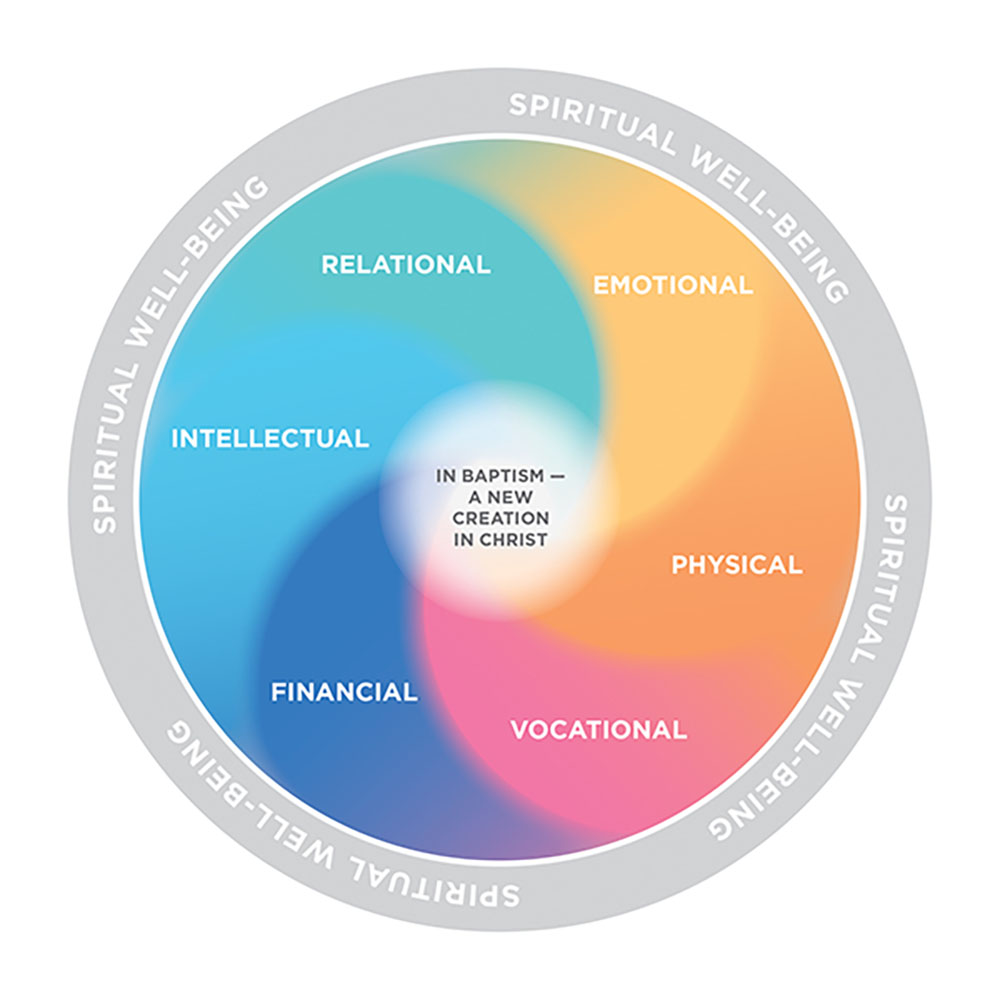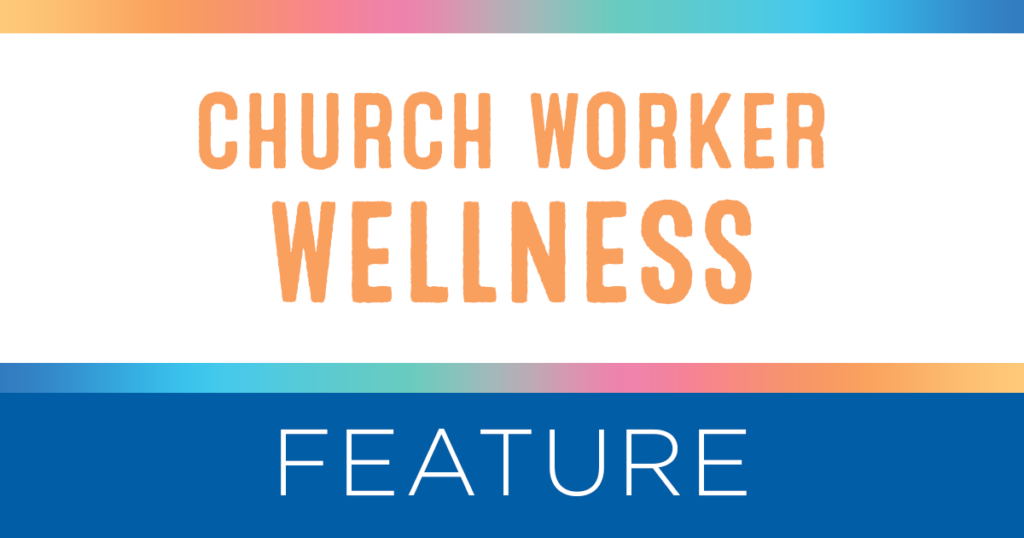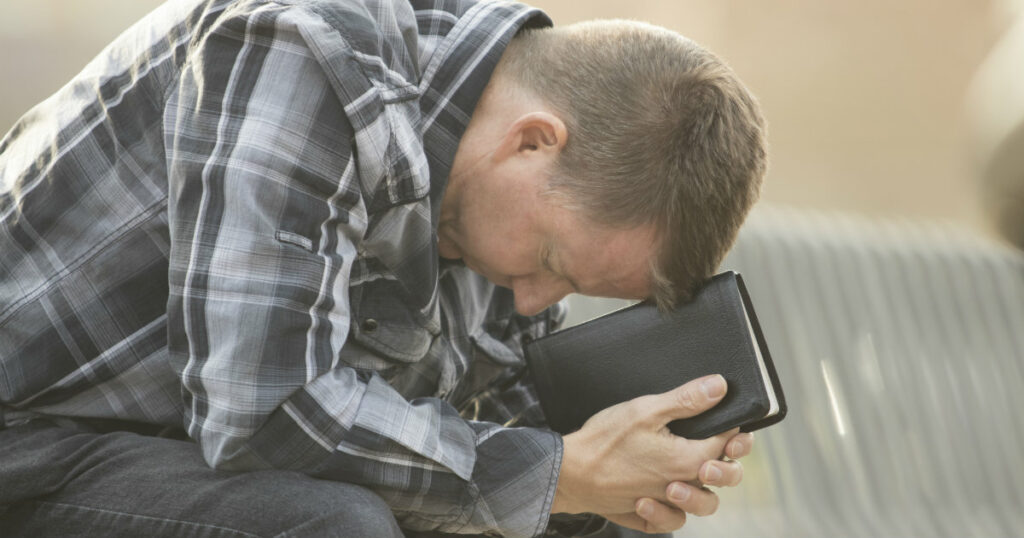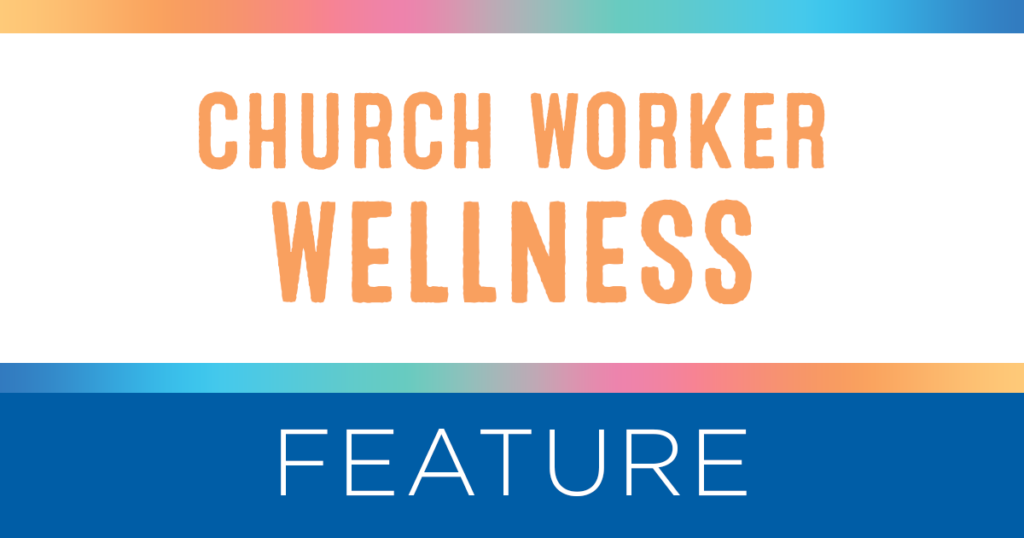Editor’s Note: This new series from LCMS Church Worker Wellness is hosted here on The Lutheran Witness site. Visit the “Ministry Features” page for regular Worker Wellness content.
As Lutherans, we understand that the various aspects of our wellness — intellectual, emotional, relational, physical, financial and vocational — relate to and depend upon one another, and are all rooted in our Baptism, our true identity as new creations in Christ. We understand spiritual well-being not as a facet of our wellness, but as fundamental to any and all facets of wellness for a Christian.
The following reflection, written by Deaconess Heidi Goehmann, explores the theology of spiritual well-being.

When we open our Bibles to Genesis 1, we quickly find God acting as Creator of everything — sun, moon, stars, mountains, treetops, the grain we eat and the people we meet. If I flip the pages forward to Genesis 2, I am confronted with another reality of God the Father’s creation work: relationship. In Genesis 2, God introduces marriage, but He also introduces connection, community, friendship and life together. In creating man, God creates the vertical realm, which is relationship between Himself and humankind. In creating human No. 2, God creates the horizontal realm, which is relationship among His people.
Genesis 2:25 clarifies for us the well-being of those relationships when we are both connected to God, as well as to one another, in harmony and unity: “And the man and his wife were both naked and were not ashamed.”
Unfortunately, Genesis 3 comes immediately after Genesis 2. It’s painful to watch perfect relationship destroyed as sin enters the world. It is notable that this first sin is also experienced within the horizontal, as well as the vertical, realm (Gen. 3: 1–10). This reminds us that, as much as we’d like to experience the consequences of our sins in a vacuum, they have relational impact. We will rarely only experience the shame and nakedness of sin on our own; rather, we feel the weight of sin’s impact, both internally and externally, as relational. We hide ourselves from God, like Adam and Eve, and in doing so, we begin our many attempts at hiding from one another as well. From a theological perspective, the opposite of relational wellness is the place where we are still hiding from God. Without Jesus, our relationship with God is fractured like a category 10 earthquake fractures a roadway. Without Jesus’ death and resurrection to redeem and heal the fracture of that relationship, we are encompassed with the shame of sin. Only Jesus lifts shame, only Jesus’ sacrifice clothes us in righteousness before God and allows us to have the reciprocity, the back and forth of relationship with the Maker of the universe.
In the Old Testament, we see the introduction of basic units of community by which God brings the message of Jesus to people all over the earth — first the family, as well as the tribes and nation of Israel. Throughout the Old Testament, God uses these vehicles to connect Himself to humankind. The family was to share the Word of His promise; the tribes were to come together in worship and confession before Him, celebrating life and God’s work in their lives before Him. In the New Testament Gospel, Jesus expands the idea of family to include those willing to hear His Word. Then on Pentecost, He introduces a new place to experience grace without shame, to be known and to belong: the church.
We, as human beings, have eternity knit into us, a knowledge of God like a compass placed in our souls, so we are always trying to return to this place where we are not ashamed. We desire to be intimately known by God, to be seen by Him “naked,” as it were, or in our deepest, more intimate selves. Knowing, at its core, is God’s work in us and among us. Knowing is God connecting the vertical realm and the horizontal realm. Isolation, whether self-imposed or imposed by others, is the opposite of relational health. Even when our personality type needs quiet time to ourselves and less interaction with others, we were created to be known by God and by His people. Relationships are complex, and until God restores all things in the new creation, we will continue to experience the consequence of sin in our relationships — shame and hiding — although through a lens of redemption with Christ in our lives.
This is relational health: Being in relationship with Christ, but also letting Christ work in our relationships through daily confession and absolution with God and among one another. In constant confession and absolution, Christ weaves His grace into our interactions and growth happens — within the vertical realm between us and God, and horizontally between us and the people with whom we interact. This is one reason our relationships within the Body of Christ should feel safer, as in, we can be more vulnerable and open with our struggles and even our sin. Only Christ brings true safety into relationships through His presence. Our relationships with those who do not follow Jesus will look and feel differently than those relationships among the communion of saints. It is spiritually and relationally healthy to have relationships outside the Body of Christ. We want to introduce those who do not know of Jesus’ sacrifice for them to the joy of being known in relationship with God and true belonging in the Body. Still, even relationships with those outside Christ need basic confession and absolution at their core to maintain our ability to be vulnerable about what is important to us, our mistakes and our hurts.
Relationships both in and outside the church are a process, Ephesians reminds us (Eph. 4:15–18; 4:25–5:2), not a product. Sin will be in our relationships, but with our awareness of that sin and Christ’s very real redemption work when we lay it before Him and let Him heal among us — at home, in friendships, in our vocations and in the Body — we grow up into Him. We grow both horizontally and vertically. Relationships will feel awkward with awareness of sin, stumbling over confessions and apologies, recognizing that feeling of nakedness our sin brings to every relationship, but if awkwardness is what brings relational health, it seems a small concession.
The Apology of the Augsburg Confession reminds us: “In all families and in all states unity should be nourished by mutual offices, and peace cannot be maintained unless people overlook and forgive certain mistakes among themselves” (V:111).1
Where do you see and feel the consequence of shame in your relationship with God? Where do you see Christ’s redemption from shame in your relationship with God?
Where do you see and feel the consequences of shame in your relationship with others? Where do you see Christ’s redemption from shame, as well as His healing and restorative work in your relationships?
Biblically, there is a lot of guidance, as far as relationships go, particularly in four areas — building intimacy and connection, confronting the impact of brokenness and redemption (in both the vertical and horizontal realms), the complication and beauty of communication and interaction with the goal of being known, and growth and nurture for relational health. There is also a lot of freedom in relationships. Galatians 5:1 reminds us that Christ came for freedom, and this may be no more important than in the area of our relationships. Christ does not bind us to one way toward knowing, belonging, growth and unity, but Christ among our relationships does offer the freedom to live outside of the shame the devil, the world and our flesh would strap onto us. So we go, and we live known, seeking to know Christ and those He places in our paths deeper each day. In Christ, we consciously and unconsciously throw off the shame the world and the devil would try to put in us and our relationships. We live unhidden, growing closer to God and to one another, building connection and community each day.
This theological reflection first appeared in the 2021 booklet “A Lutheran Perspective on Well-Being” (LCMS).
In the coming months, you will hear more about the work of LCMS Church Worker Wellness initiative, including new resources and more. Stay tuned to Reporter, The Lutheran Witness and the LCMS Church Worker Wellness site for updates.





